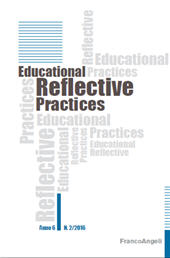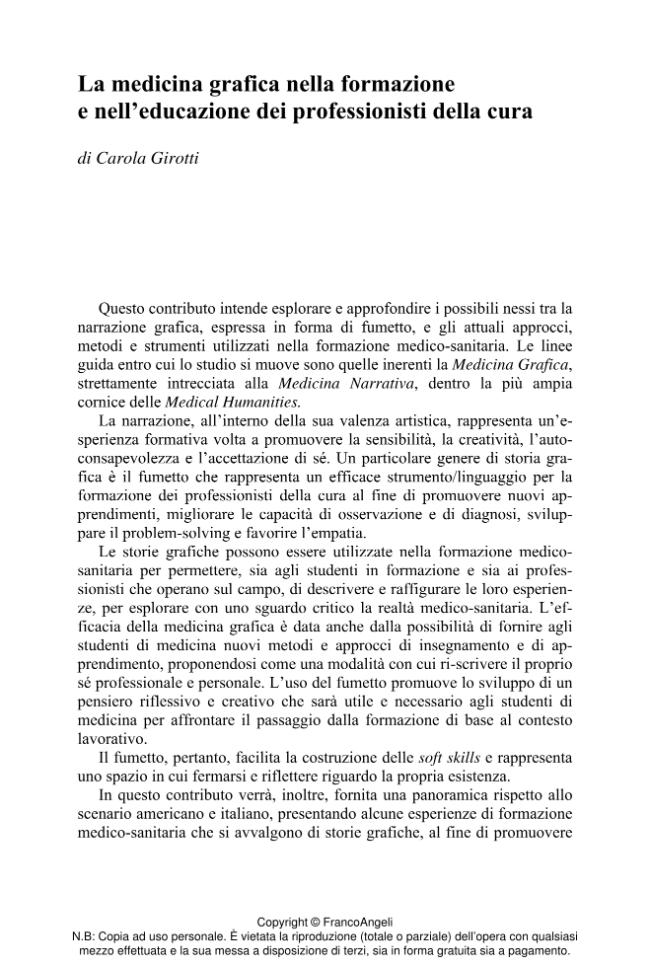La medicina grafica nella formazione e nell'educazione dei professionisti della cura
89-108 p.
This paper will explore and investigate the possible links between the graphic narrative, expressed in the form of comics, and the current approaches, methods and tools used in the medical-health care training. The guidelines within which the study moves are related to Graphic Medicine, closely intertwined with Narrative Medicine inside the broader framework of Medical Humanities.arrative within its artistic value, represents a worthwhile training experience to enhance sensitivity, creativity, self-awareness and self-acceptance. A particular kind of graphic story is the comic, which is an effective tool/language for the training of medical care professionals in order to favour new learning, improve skills of observation, diagnosis, problem-solving and build empathy. Graphic stories can be used in medical and health training to allow both students in training and professionals operating in the field, to describe and depict their experiences, in order to explore critically the medical-health world. Graphic medi
cine is effective as it gives also the opportunity to provide medical students with new methods and approaches to teaching and learning, being a way to re-write the professional and personal self. The use of comics encourages the development of a thoughtful and creative thinking, which will be useful and necessary to medical students to deal with the transition from basic training to the work context. The comic, therefore, facilitates the construction of soft skills and it represents a space in which care professionals stop and think about their own existence. This contribution will also provides a view over the American and Italian reality, presenting some experiences of medical and health training based on the used of graphic stories, in order to promote and decline methodologies and paradigms of the graphics medicine in the care practice. [Publisher's Text].
Fa parte di
Educational reflective practices : 2, 2016-
Articoli dello stesso fascicolo (disponibili singolarmente)
-
Informazioni
Codice DOI: 10.3280/ERP2016-002007
ISSN: 2279-9605



